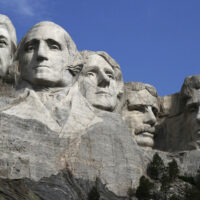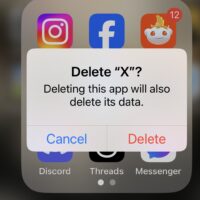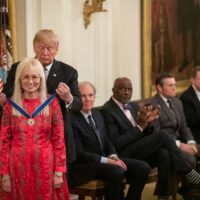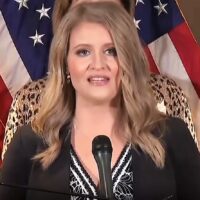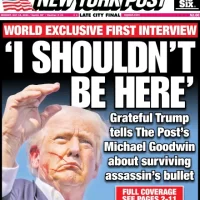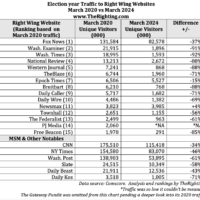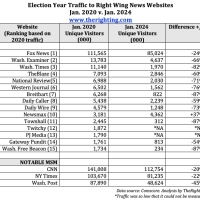
More Americans Embrace Guns After Oct. 7 Attacks
By Michael Lovito, November 26, 2023
Despite taking place more than 5,000 miles away, the October 7 attacks in Israel have had a massive impact on American society. But while student protests and legislative battles over America’s role in the conflict between Israel and Hamas dominate the headlines, there’s another important trend bubbling just beneath the surface: Americans are arming themselves at a stunning rate.
Ask someone five years ago to describe the stereotypical gun owner, and they might invoke the cast of “Duck Dynasty.” But recent statistics show that the shock of October 7 and the turmoil of 2020 have made the U.S. gun owning population less male, less white, and less rural than it used to be. Not surprisingly, a wave of Israelis have also decided to purchase handguns to defend themselves against another potential attack from Hamas.
The political impact of this spike in gun sales remains unclear, but the trend is undeniable, and could eventually dictate the terms of the ever-evolving gun debate, both at home and abroad.
A Shock to the System
While many Israelis have some form of firearms experience thanks to the country’s mandatory conscription policy, demand for civilian gun ownership has always been relatively low, with an average of approximately 40,000 to 50,000 handgun permit applications filed in a year, compared to over 750,000 firearms registration applications filed in the U.S in 2022 alone. But according to Simcha Rothman, the Chair of the Israeli Knesset’s Constitution, Law, and Justice Committee, that’s changing. In an interview with Stephen Gutowski of The Reload, Rothman said that 150,000 Israelis applied for handgun permits a month after the attacks, tripling the yearly average. By November 16, that number rose to 236,000.
Gutowski, who also contributes to CNN as a member of its Guns in America team, said that this trend has been mirrored in the United States, with Jewish Americans choosing to arm themselves after a surge in antisemitic violence and rhetoric as domestic divisions over the war in Gaza intensify.
“People didn’t think that was something that could happen in Israel,” Gutowski said about the assault that left 1,200 Israelis dead. “Especially for Jewish Americans, Israel had this reputation as a safe place for the Jewish people. And when that was tested, it made people want to take their security into their own hands to a certain degree, or at least have that option available to them.”
A Cultural Shift
It’s not just Jewish Americans who are becoming first time gun owners, and it’s not just October 7 that has encouraged Americans to learn how to shoot. Earlier this month, the National Shooting Sports Foundation reported that the FBI conducted 1.3 million criminal background checks connected to gun sales in October, an 8.3 percent increase from a year ago. Between 2019 and 2020, gun ownership among African Americans, Hispanic Americans, and Asian Americans increased at a 58, 49 and 43 percent clip respectively. A 2022 study published in the Annals of Internal Medicine found a similar trend, noting that approximately half of all people who purchased guns for the first time during the COVID-19 pandemic were women, and 20 percent were Black.
“The last 20 years or so, more women have been buying guns, as have more minorities, more urbanites, and more suburbanites,” Gutowski said. “People are buying them more for self-defense than hunting. It’s a cultural shift that’s been ongoing, but the pandemic really sped things up.”
Covering the Gun Story
Gutowski founded The Reload, which he says is devoted to publishing “sober, serious firearms reporting and analysis,” in 2021 after spending seven years at the Washington Free Beacon, where he established himself on the firearms beat. A gun owner and certified firearms instructor, Gutowski says he chose to mix his passion and profession because he felt that mainstream media outlets focused on it only after mass shootings, relying on familiar narratives that lacked nuance.
“The narrative that happens after every mass shooting is ‘other countries don’t have these issues, because they’ve severely restricted gun ownership,’” Gutowski said. “But I don’t know how much European gun culture or even Israeli gun culture influences American gun culture. It gets brought up a lot, but it hasn’t changed anything in our politics.”
A Diverse Population of Gun Owners
But these assumptions can work in the reverse as well. According to Gutowski, the rise in defensive gun ownership in the United States and Israel, as well as countries like Ukraine, Ecuador, and Brazil, encouraged some firearms advocates to believe that Democratic office holders would either be forced to move away from gun control policies or be replaced by pro-gun Republicans. As recent election results attest, that hasn’t been the case. Part of the reason is that voters have prioritized other issues like abortion, election denialism, and Donald Trump’s various trials. Another possibility – as the gun-owning population becomes more diverse, so do the motivations for purchasing a firearm in the first place.
“The reason why a white lady in rural Tennessee bought a gun is probably different than the reason why a young Black woman in Baltimore bought a gun,” Gutowski said. “Not that either one of them would have good or bad motivations. But they’re going to have different values in a lot of cases, and that’s going to lead to different approaches to gun ownership.”
Michael Lovito is a Brooklyn-based reporter and critic whose work has appeared in Salon, Brooklyn Magazine, Pavement Pieces, and The District. He also serves as editor-in-chief of the politics and pop culture website The Postrider. @MLovito
Interested in more news about right-wing media curated especially for mainstream audiences? Subscribe to our free daily newsletter.
According to Stephen Gutowski, founder of the pro-Second Amendment website The Reload, the rise in defensive gun ownership may result in Democratic office holders to either move away from gun control policies or be replaced by pro-gun Republicans.








